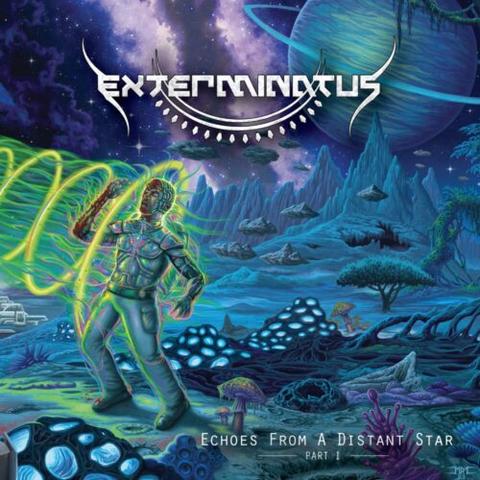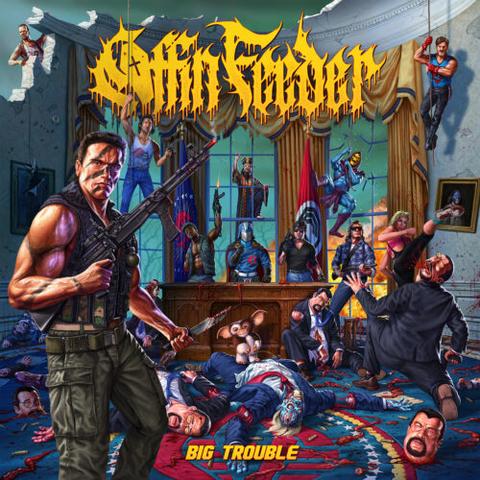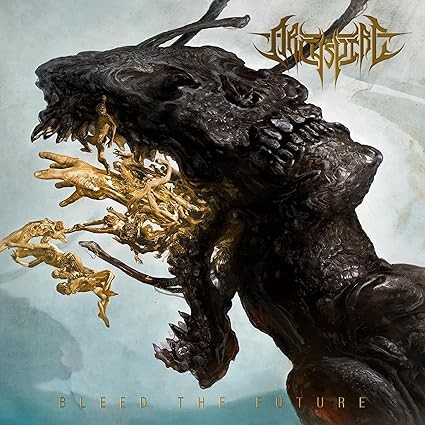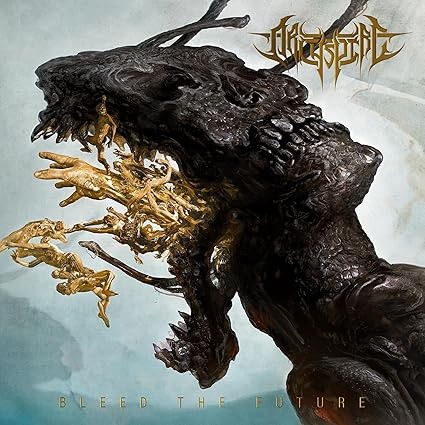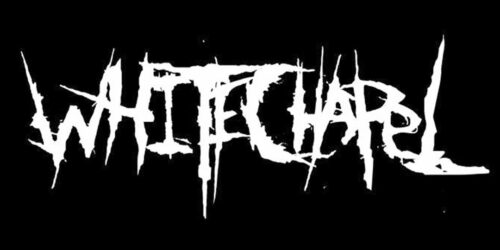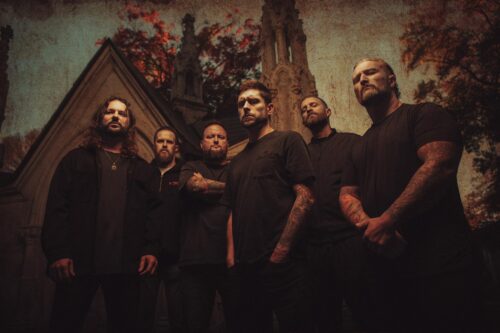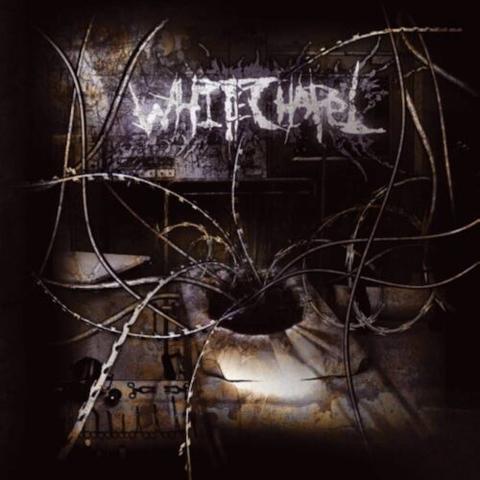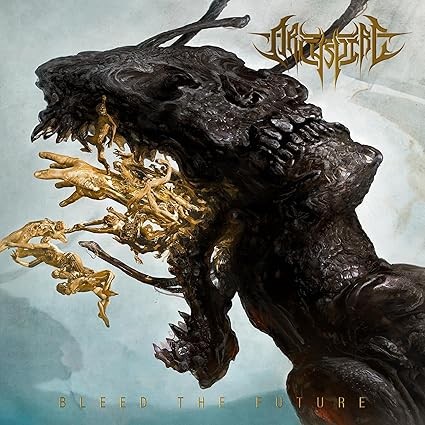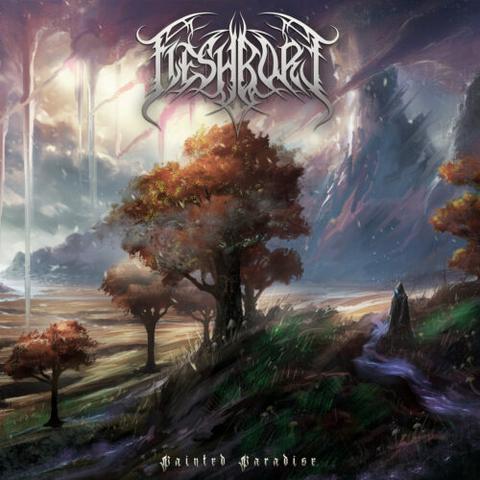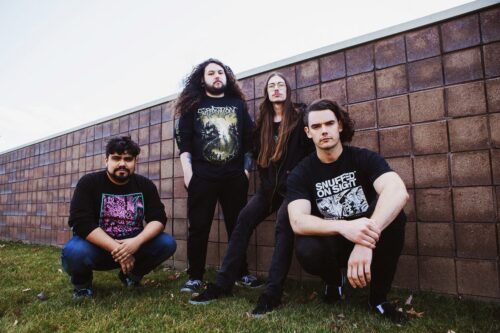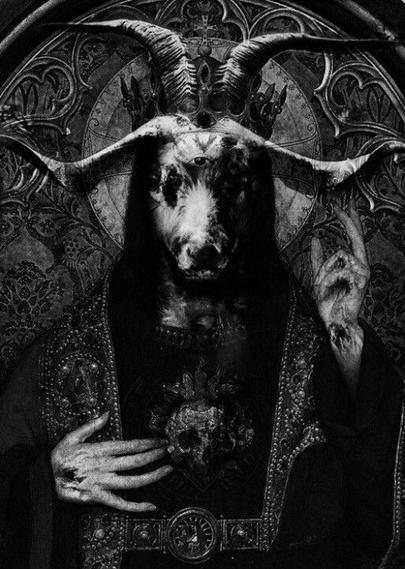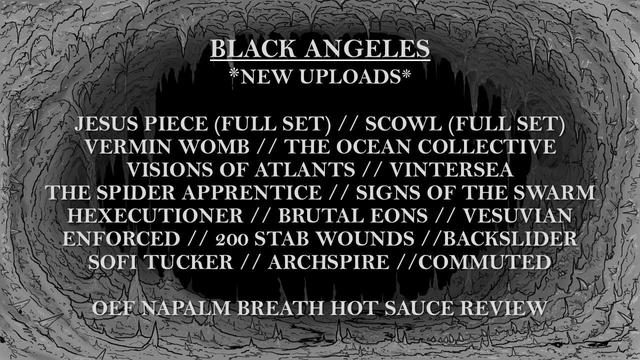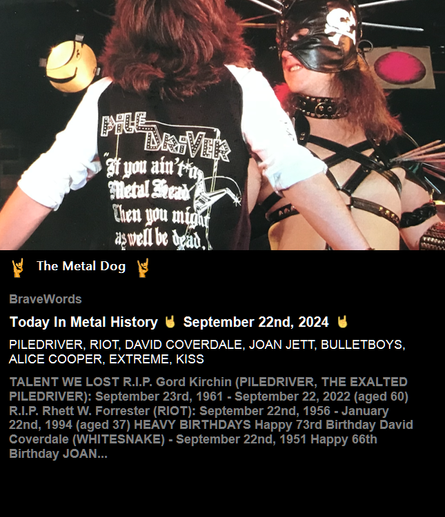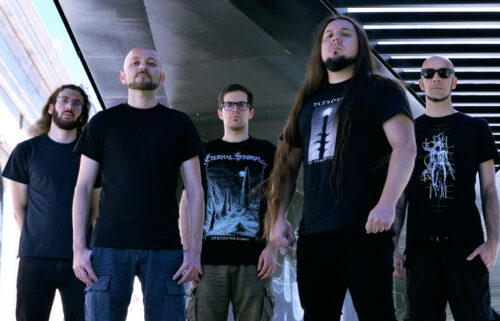Saunders and Felagund’s Top Ten(ish) of 2024
By Dr. A.N. Grier
Saunders
Rather than delve into the not-so-good parts of a rollercoaster 2024, which had its share of rough circumstances, I’m using this rare soapbox moment to focus on the positives of another action-packed year of metal. Celebrating ten years of writing at Angry Metal Guy was an achievement that crept up. All these years later I remain beyond stoked and privileged to still be contributing in a small way as the blog has snowballed into the juggernaut it is today.
Unfortunately, I haven’t quite fulfilled my writing productivity goals in 2024. However, even when motivation slips, it still gives me great satisfaction to have a platform to share my thoughts and opinions on the music I love. I cannot match the writing chops or word smithery of our most esteemed scribes. However, honing my craft within my own abilities and drawing inspiration from the excellence of my fellow writers continues to motivate me and hopefully steer listeners toward some great music.
While it may not compete with some of the top-shelf individual years over the past decade, 2024 featured a lot of top-shelf stuff across a multitude of genres sprawled over the heavy spectrum. As per usual, the plethora of releases was overwhelming and again I stumble into the end-of-year chaos with a hefty list of stuff I need to check out or spend more time with. Nevertheless, from the numerous albums, I spent quality time with throughout the year, I eventually arrived at the releases that mattered the most to me, with many gems to no doubt uncover in the end-of-year wash-up. This is probably one of the more eclectic lists I’ve cultivated during my time here. Not sure exactly why that was the case, but a year of fluctuating, uneasy shifts on personal and professional fronts perhaps contributed to the more diverse listening rotation.
To wrap up, a heartfelt thank you to our beloved readership for making this all worthwhile and to all my colleagues/writing buddies and general crew of awesome people comprising the ever-expanding blog. Also shout-out to my list buddy Felagund, here’s hoping our combined powers partially align or otherwise complement and provide some listening inspiration. Lastly, a special heads-up to Angry Metal Guy, Steel Druhm, and the rest of the AMG editors and brains trust for whipping us all into order and doing the behind-the-scenes heavy lifting to keep this great thing chugging along. Cheers.
#ish: Anciients // Beyond the Reach of the Sun – Personal dramas, line-up shuffles, and an extended stint away from the studio failed to hamper the triumphant return of Canada’s progressive-stoner-sludge heavyweights Anciients. Beyond the Reach of the Sun marks a strong return that expands the band’s songwriting vision through a standout collection of ambitious, heavily prog-leaning cuts. Loaded with dazzling guitar work and gripping songwriting, Beyond the Reach of the Sun finds the band recalibrating and hitting their songwriting straps without compromising the genre-splicing traits and character they formed across their first couple of albums. It is not a perfect album by any means, with some niggling elements rearing their head, mostly via the way of some bloat, sequencing issues, and a flat production job. But with songs of the outstanding quality of “Despoiled,” “Is it Your God,” and “The Torch” leading the way, the album’s issues fail to extinguish my overall enthusiasm.
#10. Madder Mortem // Old Eyes New Heart – I came to veteran Norwegian progressive metal outfit Madder Mortem late in the game, just as they appeared to be hitting modern-era career peaks via Red in Tooth and Claw, and most recent album, 2018’s Marrow. Six long years in the wilderness and Madder Mortem return without missing a beat, continuing to pump out expressive, powerfully composed jams of their trademark mix of Goth-tinged progressive/alt metal. Although I enjoyed the album from the outset, if anything it has grown in stature since its early year release. The album’s subtleties and bevy of emotion-charged hooks bury deeper into the brain upon repeat doses. The tough period the band endured prior to the unleashing of Old Eyes New Heart is reflected in the album’s raw, potent swell of emotions and overall depth. This is further reflected in the diverse nature of the colorful songwriting, swinging from bluesy, melancholic restraint (“Cold Hard Rain”), pop-infected prog (‘Here and Now”) to urgent, dramatic, and infectious rock powerhouses (“The Head That Wears the Crown,” “Towers”).
#9. Opeth // The Last Will and Testament – As a longtime Opeth fanboy, it is a cool feeling to be genuinely enthused about a new LP, nearly three decades since their underrated Orchid debut. All the pre-release buzz centered on the return of Åkerfeldt’s famed death growls. While certainly a cool and unexpected touch, the fourteenth album The Last Will and Testament is not merely a nostalgic throwback to the band’s glory days. Instead, Opeth fuses those quirky, vintage prog tools from their modern-era material and fuses them into an intricate concept album that is a significant step up from the past couple of uneven efforts and easily their best work since at least 2014’s Pale Communion. Dazzling musicianship, jazzy licks, and inventively crafted, yet notably more focused and concise writing marked an album that features better production and tighter, punchier songs than the band has written in a while. It is also Opeth’s heaviest, most riff-centric release in many moons. Despite the trademark melancholic moods and darker shades, it also sounds as if the band is having real fun, reinforced by the abundance of bouncy, infectious riffs, shreddy solos, and boisterous grooves littering the album. Likely would have earned higher honors with time, as I still feel there is much more to discover.
#8. Oceans of Slumber // Where Gods Fear to Speak – Previously enjoyed the idea of Texan progressive metal powerhouse Oceans of Slumber, more than the execution and finished product. In particular, 2016’s Winter has grown in stature over the years. Yet for much of their career, it has felt like a case of incredible talent and potential not fully realized. That changed on Where Gods Fear to Speak, arguably the band’s most complete, consistent, and hook-laden release. When I felt the prog itch throughout 2024, Where Gods Fear to Speak was often the go-to. An album of lush, moody, drama-filled compositions, deftly contrasting soaring melodies, and skyscraping hooks with muscular riffage and heftier bouts of aggression, the writing is tighter and more compelling than previous efforts. Cammie Beverly’s scene-stealing vocals may take center stage, but this is very much a complete effort, where the rich soundscapes, brooding atmospheres, and technical musicianship shine brightly. Loaded with killer jams, including stirring highlights, “Don’t Come Back from Hell Empty Handed,” “Wish,” and “Poem of Ecstasy,” Where Gods Fear to Speak finally finds Oceans of Slumber firing on all cylinders.
#7. Pyrrhon // Exhaust – In theory, Pyrrhon should be one of my favorite bands. I used to eat up all manner of skronky, dissonant, and abrasive extreme metal. Perhaps my thirst for the weirder, experimental forms of death metal and dissonance has softened over the years. However, while largely enjoying Pyrrhon’s career up to this point, Exhaust feels like the album I have been waiting for the band to deliver. Exhaust dropped unexpectedly and that element of surprise flowed through another oddball, deranged platter of wildly inventive, chaotic, yet oddly accessible (in Pyrrhon terms) extreme metal. From cautious, challenging early listens, I found myself increasingly compelled to revisit Exhaust on a regular basis, marveling at its flexible, fractured songwriting, nimble musicianship, and raw hardcore punk edge infiltrating the dissonant, experimental death metal at the core of the Pyrrhon experience. Gritty production, perfectly unhinged vocal performance from Doug Moore, and occasional burst of groove and shred of accessibility punctuating the chaos (“First as Tragedy, Then as Farce,” “Strange Pains,” “Stress Fractures”) lend the album a refreshingly addictive edge to counterbalance its abrasive, challenging angles.
#6. Replicant // Infinite Mortality – New Jersey’s Replicant previously exhibited their brawny, yet brainy mix of gnarled dissonance, technicality, and knuckle-dragging street grooves to powerful effect. However, third album Infinite Mortality levelled the playing field as the band upped their game to elite levels of controlled chaos, while the writing remained challenging yet strangely accessible and memorable. In spirit, the ugly mix of harshness, discordance, and headbangable blockbuster grooves reminds me of the great Ion Dissonance. Meanwhile, the contrasting blend of unorthodox melody, jagged dissonance, and stuttering, complex song structures come together with cohesion and blunt force, punctuated by the occasional warped solo. Like a harsh, harrowing soundtrack to a bleak dystopian future, Infinite Mortality is a mean, chunky, technical, and deliciously primal slab of advanced disso-tech-death excellence.
#5. Noxis // Violence Inherent in the System – Notably death metal in 2024 was dominated by brutal, dissonant varieties, designed to scramble brains and challenge minds while battering the listener into submission. Refreshingly, unheralded surprise packet Noxis unloaded a killer debut LP to savor. Drawing from an array of old-school influences and ’90s touchstones without ever aping one particular band or style, Noxis unleashed a nostalgic yet unique death metal platter. Managing to at once sound raw and unclean, technical and brutal, thrashy and proggy, sharp and refined, Noxis blaze their way craftily through memorable, riff-infested wastelands with unbridled aggression, speed, and finesse, rubber-stamped by some exceptional bass work. Remnants of the classic Floridian scene mingle with powerful influences, including early Cryptopsy, later-era Death, Atheist, and Cannibal Corpse, resulting in a finished product that sounds fresh and vital, while containing an endearing, workmanlike old-school charm. It works a treat, and the top-notch and frequently inventive writing reveals impressive depth and character that rewards repeat listens.
#4. Dissimulator // Lower Form Resistance – There are some serviceable, enjoyable thrash-aligned albums in 2024, but one stood head and shoulders above the competition. Comprised of a grizzled bunch of underground Canadian musicians hellbent on fusing advanced technical thrash assaults with sick old-school death-thrash, a fuckton of killer riffs, quirky vocoder action, and razor-sharp hooks, Lower Form Resistance has consistently provided an adrenaline-filled shot of thrash when needing that specific fix. Dissimulator rewires thrash in intricate and intriguing ways, giving me the same giddy rush as past experiences with the likes of Capharnaum, Vhol, and Revocation. Excited to hear what these dudes conjure up next. In the meantime, Lower Form Resistance will continue to keep my thrash cogs oiled through potent bangers like “Warped,” “Automoil & Robotoil,” and “Hyperline Underflow.”
#3. Huntsmen // The Dry Land – After somehow sleeping on 2018 debut American Scrap and subsequently their apparent sophomore slumping second album, I finally righted my wrongs by delving into the strange and wildly unique woodlands of Chicago metal troupe Huntsmen and their phenomenal third LP, The Dry Land. A raw, rustic, and emotionally striking explosion of genre-bending excellence, where blackened sludge, doom, post, prog, folk, and Americana influences coalesce into an intoxicating and frequently thrilling musical formula, rich in detail and emotion. The skilled genre mashing is cohesive and genuine, loaded with surprises, structural twists, dramatic ebbs and flows, deep burrowing hooks, and contrasting vocal trade-offs to seal the deal on a remarkable album. Despite only a small handful of songs comprising the album (six in total), Huntsmen make every moment count, from blazing longer numbers with stunning contrasts and peaks (“This, Our Gospel,” “In Time, All things”) to plaintive folk dusted rock (“Lean Times”), through to the stunningly moving, compact power of “Rain.” Huntsmen occupy a unique space in the metalverse.
#2. Borknagar // Fall – I have a slightly odd history with Norwegian legends Borknagar. I recall being taken by their excellent 2012 album Urd, yet oddly enough I didn’t extend my listening beyond that isolated release. Things changed with 2019’s True North, a typically solid offering that inspired my explorations of portions of their vast and consistently engaging catalog. The twelfth album Fall marks their first album since True North and again features an outstanding line-up of talents, including founding mastermind Øystein Brun, multi-talented keyboardist/clean vocalist Lars Nedland, and ace up their sleeve bass/vocal powerhouse ICS Vortex. Fall smacks of a veteran band not merely content to coast on their laurels but rather carve freshly creative trajectories for their now signature blend of epic prog, triumphant Viking, and icy black metal to thrive. An extra shot of old-school blackened aggression and fuller production boosted an album of consistently high quality. Fall became a true all-occasions album in 2024; often uplifting me when I felt down or giving me a punchy charge when the need arose. Wall-to-wall prime cuts feature, headlined by the storming “Summits,” moody earworm, “The Wild Lingers”, and the striking, epic shimmer of “Moon.” Stalwarts still operating at the top of their game.
#1. Counting Hours // The Wishing Tomb – Not since Fvneral Fvkk’s remarkable Carnal Confessions debut has a doom album struck as hard as the second platter of sadboi misery perpetrated by Finland’s excellent Counting Hours. While doom and its death-doom companion may not always dominate my listening habits, when an album does hit that sweet spot, it usually leaves a profound impact. Few forms of metal generate the emotional resonance of quality doom and Counting Hours tears at the heartstrings through a riveting collection of gorgeously played and executed death-doom ditties, spearheaded by former members of the hugely underrated Rapture. Ilpo Paasela backs up the stellar musicianship, superb guitar work, and tight, addictive songwriting with a stunning mix of emotively raw, stately cleans and rugged death growls. The whole package packs an emotional wallop, yet its soulful edge and hopelessly addictive hooks and sing-along moments prevent a drop too deeply into depressive waters, as such earwormy gems as “Timeless Ones,” “All That Blooms (Needs to Die),” and “Starlit / Lifeless” attest. The Wishing Tomb is an epic album to lose yourself in.
Honorable Mentions:
- Blood Incantation // Absolute Elsewhere – Did I overrate Absolute Elsewhere? Possibly. Is it overhyped? Absolutely. Yet Blood Incantation remains a brave, adventurous band and Absolute Elsewhere represents a welcome return to form from these gifted, star-gazing space cadets. A flawed but effective fusing of their death metal roots with an increased focus on ’70s-inspired progressive rock and trippy psych flourishes.
- 200 Stab Wounds // Manual Manic Procedures – I barely took notice of Cleveland’s 200 Stab Wounds debut LP, but sophomore album Manual Manic Procedures provided one of the real surprise packets in 2024. It very nearly cracked the main list sheerly through heavy rotation. A meaty, adrenaline-charged shot of muscular death into the veins.
- Ripped to Shreds // Sanshi – Another reliably awesome slab of old-school death from Andrew Lee and co. Increasingly shreddy, extravagant solo work and a grindier edge powered one of their best albums yet.
- Nails // Every Bridge Burning – Nails is back and that is a great thing. New line-up, the same mode of short, sharp, blast-your-skin-off aggression, head-caving grooves, and hate-filled energy.
- Unhallowed Deliverance // Of Spectre and Strife – A pleasant surprise and one of the best debut albums in 2024. German tech-slam-brutal death juggernaut Unhallowed Deliverance knocked it out of the park with limited subtlety but a heap of talent, creativity, and songwriting smarts.
- Wormed // Omegon – With Ulcerate’s latest release not quite hitting me on the intense level of others, and having run out of time to properly digest and rank the obvious high-quality new Defeated Sanity, Wormed’s long-awaited return gave me my fix of calculated brutality via futuristic, slammy, technical brutal death executed in typically warped, mind-blowing fashion.
- Khirki // Κυκεώνας – Following up an impressive, well-received debut LP is no easy feat. Kenstrosity steered many of us from the AMG community onto Greek band Khirki’s Κτηνωδία debut in 2021, so I eagerly anticipated Khirki’s return for the second go around. The resulting album met expectations through a fiery, passionate, and eclectic mix of metal, rock, and traditional Greek folk.
- Sergeant Thunderhoof // The Ghost of Badon Hill – A late-year list shaker, underappreciated UK psych-prog-stoner outfit Sergeant Thunderhoof unleased a more restrained, psych-enhanced, and introspective album, showing signs of being a genuine grower since its November release, despite not quite hitting the irresistible highs of 2022’s This Sceptred Veil.
Disappointments o’ the Year:
- Several highly anticipated albums did not quite land the killer blows I was hoping for. Respectable to very good albums, but I expected better from Vola (admittedly a grower), Caligula’s Horse, Ihsahn, and especially Zeal and Ardor.
Non-Metal Picks:
- St Vincent, SIR, Michael Kiwanuka, Allie X, MGMT
Song ‘o the Year:
- Counting Hours – “Timeless Ones”
There were any number of standouts and potential Song o’ the Year candidates that could have nabbed top honors, including several counterparts from Counting Hours’ spectacular sophomore album. In the end, I settled on the (proper) album opener of my album of the year, as the tune that really hooked me initially from an album that captivated my soul. A rich, emotive piece of dark, melodic death-doom with superlative guitar melodies and a chorus for the ages. Honorable mention to Huntsmen’s “Rain.”
Felgund
I don’t know about you, but I’m tired of living in interesting times. But as that wizened sage, Gandalf so wisely reminds us: “So do all who live to see such times. But that is not for them to decide. All we have to decide is what to do with the time that is given to us.”
So what have I been doing with the time that has been given? A fair amount, as it turns out. 2024 has certainly been a tumultuous year for our small family. On the one hand, the business that I launched in 2023 has been chugging along for well over a year and a half now, and I think I’m far enough along in the process that I feel (at least somewhat) comfortable calling it a success. The baby that we brought home from the hospital is now, inexplicably, a whip-smart 7-year-old. My wife’s career continues to blossom as she continues to moonlight as my business manager. Things are good.
And yet 2024 also proved to be harder than I’d ever imagined. My dad died back in April, an experience that remains both devastating and surreal. He’d had multiple sclerosis for well over a decade, and as I’m sure many of you know, MS is a grasping, grinding petty little disease. But for as much as it stole, it proved incapable of taking away who my father was; it couldn’t quite make off with what made him him. He was my best friend before his diagnosis, and he remained my best friend up until that impossible evening in a hospital room in early April. Truth be told, he’s still my best friend, only now he’s free to walk wherever I see fit to imagine him.
Despite my best efforts, I realized pretty quickly you can’t capture a life in a few paragraphs. I couldn’t do it in his eulogy, and I certainly won’t attempt to do so on a heavy metal blog. But I will share this:
My dad was a carpenter by trade and an artist by choice; he was a fisherman and a cook; he was a handyman, a builder, a designer, and a writer; he taught himself how to play guitar, and he’s perhaps the singular reason why I’m writing for this website today. Because while he wasn’t a fan of metal himself, he instilled in me not only a love for music, but an interest in the process; in the people who create it, the minds that shape it, and the passion that births it.
He played in countless bands in his youth, and I can think of no better way to honor his memory than by sharing some of his music with you all. With Steel’s blessing, I’m embedding a two-song demo (“A Place in Time” and “Street Legal”) ripped from a cassette my old man recorded in the late 80s, so apologies in advance for the questionable quality. He composed both the music and lyrics, played guitar and bass, and sang on both tracks, which were devised when he was perhaps at his Rush fanboy peak. It’s been a delight and a balm hearing his voice again, captured as it was in a moment when he was young, vibrant, and doing what he loved.
So here we are. Despite (or perhaps because of) this, I managed to consume a fair amount of metal this year. And while I was far less productive as a writer than I’d hoped and I wasn’t able to listen to as much as I originally planned, I discovered a plethora of new music here on AMG that soothed what Neil Peart once referred to as his “baby soul.” And surprisingly, I found much of that solace in the discordant, the dissonant, and the off-kilter, as the list below probably reflects. But more importantly, I found compassion, support, and understanding amongst the writing staff here. And while they may not know it, I will be forever thankful for the folks who showed me such boundless kindness during a year that felt decidedly unkind. Thank you, my friends.
Now let’s get to to it. Here are my top ten(ish) albums of 2024.
#(ish). Beaten to Death // Sunrise Over Rigor Mortis – It almost feels like cheating to place an 18-minute album in my Top 10(ish), but here we are. 2024 proved to be a year where my interest in grind and grind-adjacent acts expanded, and this “ish” is the result. While I wasn’t aware of Beaten to Death prior to this release, I was quickly swept away by Sunrise Over Rigor Mortis’ ability to bludgeon its idiosyncratic way into my brain and coil there like the most glorious of infections. Beaten to Death has delivered a concise helping of grinding goodness, with crispy prog edges and a schmear of off-kilter humor. Back catalog, here I come!
#10. Sleepytime Gorilla Museum // Of the Last Human Being – Gardenstale’s gushing review of Sleepytime Gorilla Museum’s fourth album Of the Last Human Being was a tough endorsement to ignore, as was an invocation of Diablo Swing Orchestra. So I threw caution to the wind and leaped headlong into this experimental maelstrom. And I’m so happy I did. Don’t let the runtime dissuade you; Of the Last Human Being doesn’t feel nearly as long as it is, and over that relatively brief timespan, you’re provided with a front-row seat to the aural equivalent of perhaps the most fun kind of performance art. Hard-edged riffs, off-kilter instrumentation, ominous theatrics interlaced with beautiful, sparse melodies, and all capped off by the deranged croons of chief carnival barker Nils Frykdahl. If I’d spent more time with this record it may have placed higher, but as it is, I’m happy it’s making an appearance at the number 10 spot.
#9. Sur Austru // Datura Strǎhiarelor – Despite Twelve underrating this album, I suppose I should commend him for introducing me to Sur Austru in the first place. This Romanian outfit’s third full-length Datura Strǎhiarelor is a potent blend of rumbling, blackened fury, and melodic folk metal, with plenty of flute work, orchestration, choral elements, and plaintive keys thrown in. And, while the gruff, chanting growls might rub some listeners the wrong way, it was this aspect more than any other that first grabbed my attention, and proceeded to keep it. And while I haven’t a clue what the vocalists are shouting at me, the tone and placement in the mix feels just right, especially for this brand of folk-infused black metal. Such is the strength of Sur Austru that this album began as my “ish” before eventually working its way to ninth. Mightly bold of them.
#8. Necrowretch // Swords of Dajjal – Some of the entries on this list were either late discoveries or took some time before they got their dirty little hooks in me. Necrowretch’s Swords of Dajjal was not one of them. As soon as I spun it back in February, it was love at first listen. Swords of Dajjal focuses on the greater deceiver in Islamic mythology, and explores that tradition through the use of ferocious blackened death metal (with perhaps a dollop or two of thrash thrown in). Although, as Carcharodon rightly pointed out in his review, the “blackened” part is doing most of the heavy lifting here. And that’s not a bad thing, as Necrowretch is more than adept at crafting memorable hooks and an engaging atmosphere without sacrificing heft or freneticism. Swords of Dajjal is an unmitigated success, and my only real gripe is that Necrowretch dropped a new platter so early in the year that it may go overlooked on too many end-of-year lists.
#7. The Vision Bleak // Weird Tales – Grier and I may not see eye to eye on music, but what can I say? The man knows his way around gothic metal. So when he awarded a 4.0 to Weird Tales back in April, what was I to do? If you said wait several months before bothering to press play, you’re correct. But folks, I may have been late to the party, but it’s a rager nonetheless. The Vision Bleak has produced an emotive, memorable, downright heart-wrenching concept album; one that is both lush and harsh, both achingly melodic and morosely heavy. Weird Tales isn’t my usual cup of tea, but The Vision Bleak has rejected my assertion by doing what many similar acts appear incapable of doing: cohesively balancing “gothic” and “metal” without lessening the impact of either. A well-earned addition, indeed.
#6. Stenched // Purulence Gushing from the Coffin – While Rots-giving may have been tarnished by a less-than-stellar release from Rotpit back in November, I’ve moved on since then, and am now proudly celebrating Stenched-mas. The Manly n’ Mighty Steel reviewed this one-man grimy death outfit last month, and even though I was still smarting from my failed attempt to poach Purulence Gushing from the Coffin for myself, I can’t in good conscience deny how hard this globular mass of funerary muck rips. From the first track to the last, you’ll be rocking a near-permanent stank face, and you can’t blame that solely on the fungal miasma wafting from your speakers. The truth is, Stenched has delivered a masterclass in riff-heavy, moss-encrusted death metal; the kind that’s perfect to drag your knuckles to. Purulence Gushing from the Coffin is the exact kind of no-frills, all-guts death metal I needed in 2024, and that’s why it’s sitting pretty at 6.
#5. Aklash // Reincarnation – How are we already at the Top Five? And what better way to kick off this most treasured of positions than with the melodic black metal stylings of Aklash on their fourth album Reincarnation? Aklash received a solid write-up in June’s Stuck in the Filter by our very own Kenstrosity, and their most recent outing has continued to climb higher and higher on my list the more I’ve spun it. Part black metal, part progressive metal, part trad metal (epic choruses included), Reincarnation packs a wallop in just a short 37 minutes. overflowing with varied instrumentation and keen lyrical chops, grandiose in scope and medieval in tone, yet more personal than it has any right to be, Aklash is firing on all cylinders here, and, as such, is perfectly suited for anyone’s top 5.
#4. Devenial Verdict // Blessing of Despair – And, just like that, more death metal rears its ugly head. I’m still surprised at how high up Devenial Verdict’s sophomore album landed on my list, primarily because their 2022 debut Ash Blind failed to connect. But Blessing of Despair seems to have arrived just in time for my increasing flirtation with the cruel mistress that is dissodeath. As such, I found myself utterly taken with Devenial Verdict’s latest, overflowing as it is with equally heavy doses of discordant ferocity and mournful melodicism. And while Blessing of Despair is an undeniably heavy record, it makes sure to leave plenty of room for quieter moments, where slower sections and sparse instrumentation have room to bloom and breathe. This approach not only results in a wonderfully balanced album but ensures the bludgeoning that’s sure to follow is all the more impactful. Consider me reformed.
#3. Aborted // Vault of Horrors – I’m fairly certain that any death metal fan worth their salt is legally required to include the latest Aborted release on their end-of-year list. Over 25 years and 12 albums into their carnal career, these death metal titans need no introduction. Blood-drenched, gore-soaked, and happily grindy, Aborted are in a league all their own, and it shows on Vault of Horrors. The music remains tight and explosive, building a menacing atmosphere that pervades only the stickiest of grindhouse theaters. Besides, with songs dedicated to classics like Return of the Living Dead, Hellraiser, and The Texas Chainsaw Massacre, how could I do anything other than include this gem of an album in my top 3? I for one welcome our horror-themed overlords.
#2. Noxis // Violence Inherent in the System – What began as a random pick from the promo sump by one Kenstrosity quickly rose to become a favorite of the death metal maniacs (those with good taste, anyway) on the AMG staff. Now, more importantly, it’s nabbed the second-highest honor on my year-end list. Noxis’ first full-length album Violence Inherent in the System sounds like the product of a much more experienced band. The songwriting is top-notch, the performances are big and bold without being overwrought, and the sticky riffs stay wedged in your mind long after the album ends. And yet for all of its bombast, Noxis is still able to infuse their debut with oodles of atmosphere, not to mention a level of balance between death metal orthodoxy and fresh bells and whistles (and horns) that would make even Thanos grimace in jealousy. Special attention must also be paid to Joe Lowrie’s snare tone and Dave Kirsch’s godlike bass performance.
#1. Pyrrhon // Exhaust – I suppose I was always destined to end up here, I just didn’t know it right away. Pyrrhon’s fifth full-length Exhaust didn’t initially grab me the way some of my other entries did. However, on repeat spins, I found myself falling deeper and deeper into its frenetic, dissonant embrace, discovering both nuances and subtleties amidst the proggy cacophony. On an album that thoroughly explores the universal theme of exhaustion, be it physical, mental, social, or economic, Pyrrhon’s brand of noise-tinged death metal feels like the ideal tool with which to scrawl their livid manifesto. But what truly sets Exhaust apart is its unrelenting groove, stoked by Pyrrhon’s inventive capacity to not only feature but to uplift its unique brand of melodicism amidst the unrelenting maelstrom. It’s hard to overstate just how critical this aspect is to Exhaust’s success, especially since it would have been so easy to excise. But Exhaust’s manic ferocity, which swerves jerks, hops, and heaves, is all the better for it. And while its charms were initially lost on me, I found it easier and easier to finally succumb to its tremulous tendrils. Any record with that kind of staying power (not to mention a theme so applicable to my own experiences this past year) has more than earned my top spot for 2024.
Honorable Mentions:
- Defeated Sanity // Chronicles of Lunacy – Defeated Sanity is a brutal tech death stalwart at this point, and now seven albums in, Chronicles of Lunacy only further cements that status. Chronicles of Lunacy provides the listener with track after aggressively intricate track exploring lunacy in its many forms, but the real treat here is Lille Gruber’s masterful performance on the drums.
- Full of Hell // Coagulated Bliss – while I don’t think I’ve become a complete grind convert, albums like Full of Hell’s Coagulated Bliss and Beaten to Death’s Sunrise Over Rigor Mortis certainly set me on the path to one day become a proud proselytizer. You can’t deny Coagulated Bliss’ infectious groove and whirlwind pace, although I agree with the Dolphin’s rating adjustment.
- Undeath // More Insane – no, it’s not as good as It’s Time…to Rise from the Grave, and there’s no reason to pretend that it is. Nor does it need to be. While More Insane may not reach the lofty heights of its predecessor, it still showcases an Undeath doing what it does best, while also hinting at an undeniable ability to evolve into an even sharper, more fetid OSDM beast.
- 200 Stab Wounds // Manual Manic Procedures – while I wasn’t entirely kind in my review of 200 Stab Wounds’ debut, Mark Z suggested I take their follow-up Manual Manic Procedures for a spin, and I’m glad I did. It’s clear they’ve grown as artists, and their sophomore effort reflects that heightened maturity. Keep stabbing on, your crazy diamonds!
- Mamaleek // Vida Blue – I’m confident this album captures what it would sound like if Tom Waits listened to too much Ashenspire before leaving for the recording studio. Long, difficult, and bold, I found myself returning again and again to Vida Blue no matter how challenging I found the experience. While this album didn’t make my top 10, I’m convinced a future Mamaleek release will.
Song o’ the Year:
- Noxis – ”Skullcrushing Defilement”
This song goes hard. Exceptionally hard. In truth, there are any number of tunes from Violence Inherent in the System that fit the “Song o’ the Year” bill, but I had to give the edge to “Skullcrushing Defilement.” Not only does it begin with an absolutely searing bass solo, but it sets the stage for the four-string onslaught that’s to come. There’s a noticeable Cannibal Corpse influence that I can’t help but love here, alongside heaping doses of maniacal melodicism, turbocharged technicality, and an earworm chorus to boot. Abandon all cervical spines, ye who enter here.
#200StabWounds #2024 #Aborted #Aklash #AllieX #Anciients #Archspire #Atheist #BeatenToDeath #BlogPosts #BloodIncantation #Borknagar #CaligulaSHorse #CannibalCorpse #Capharnaum #CountingHours #Crytopsy #Death #DefeatedSanity #DevenialVerdict #DiabloSwingOrchestra #Dissimulator #Dissonance #FullOfHell #FvneralFvkk #Huntsmen #Ihsahn #Khirki #Lists #MadderMortem #Mamaleek #MGMT #MichaelKiwanuka #Nails #Necrowretch #Noxis #OceansOfSlumber #Opeth #Pyrrhon #Rapture #Replicant #Revocation #RippedToShreds #Rotpit #SaundersAndFelagundSTopTenIshOf2024 #SergeantThunderfoot #SIR #SleepytimeGorillaMuseum #StVincent #Stenched #SurAustru #TheVisionBleak #TomWaits #Ulcerate #Undeath #UnhallowedDeliverance #Vhöl #Wormed #ZealAndArdor

